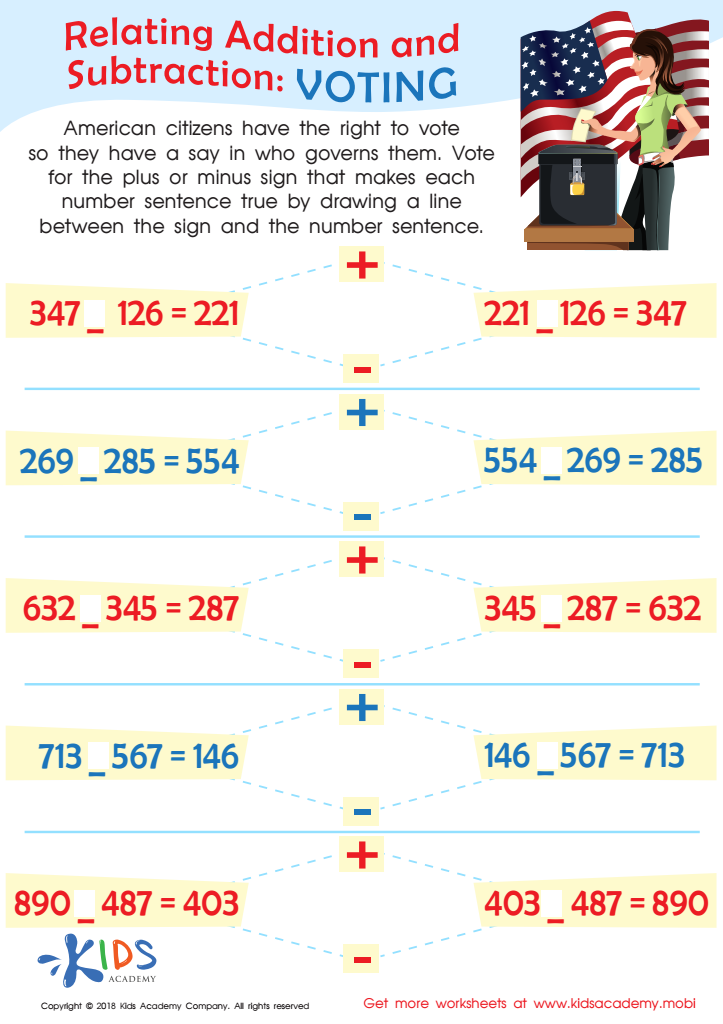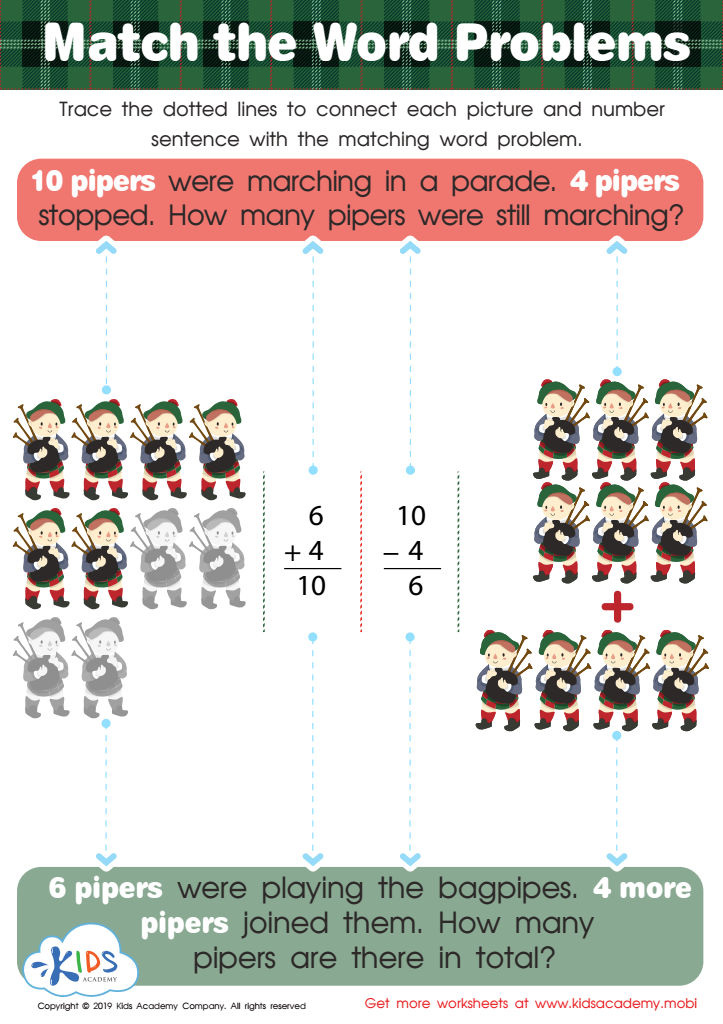Logical thinking development Normal Subtraction Worksheets for Ages 3-8
3 filtered results
-
From - To
Enhance your child's logical thinking skills with our engaging Normal Subtraction Worksheets, designed for ages 3-8. These thoughtfully crafted worksheets provide a fun and interactive way for young learners to master subtraction concepts. By using colorful visuals and age-appropriate examples, kids will develop their reasoning abilities while building a strong mathematical foundation. Our worksheets foster problem-solving skills and encourage creative thinking, ensuring that learning subtraction becomes an enjoyable experience. Perfect for classroom or home use, these resources are ideal for parents and teachers seeking effective tools to support early math education. Start your child's journey to confident calculations today!


Grocery Store Fun! Worksheet


Voting Worksheet


Match the Word Problems Worksheet
Logical thinking development through normal subtraction is crucial for children ages 3-8 as it lays the groundwork for strong mathematical skills and critical problem-solving abilities. During these formative years, children are wired to explore and understand their world, and subtraction offers them a practical tool to make sense of relationships between numbers and real-life situations.
Engaging children in subtraction activities enables them to develop strategies like counting backward, visualizing quantities, and understanding the concept of "taking away." This foundational skill fosters cognitive abilities required in more complex mathematics, enhancing not just numeracy but also analytical thinking. Moreover, strong logical thinking aids in other subjects, enabling children to process information effectively.
Furthermore, when parents add supportive practices like games, storytelling, or hands-on activities involving subtraction, they create a richer learning environment at home. Teachers can expand on this by integrating subtraction into daily classroom routines, making learning relevant and fun.
Ultimately, investing time in developing logical thinking through normal subtraction provides children with both academic advantages and essential life skills, promoting perseverance and self-confidence in their problem-solving endeavors. This early investment sets them on a path for lifelong learning and success in various areas of their lives.
 Assign to My Students
Assign to My Students





















